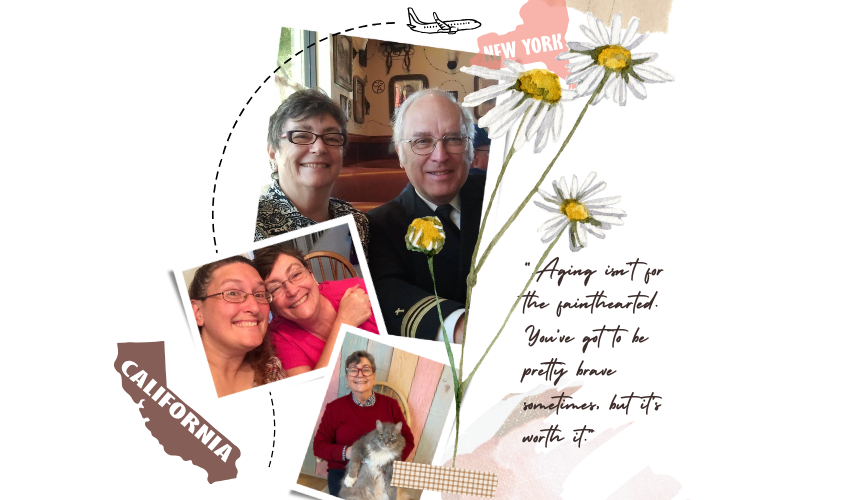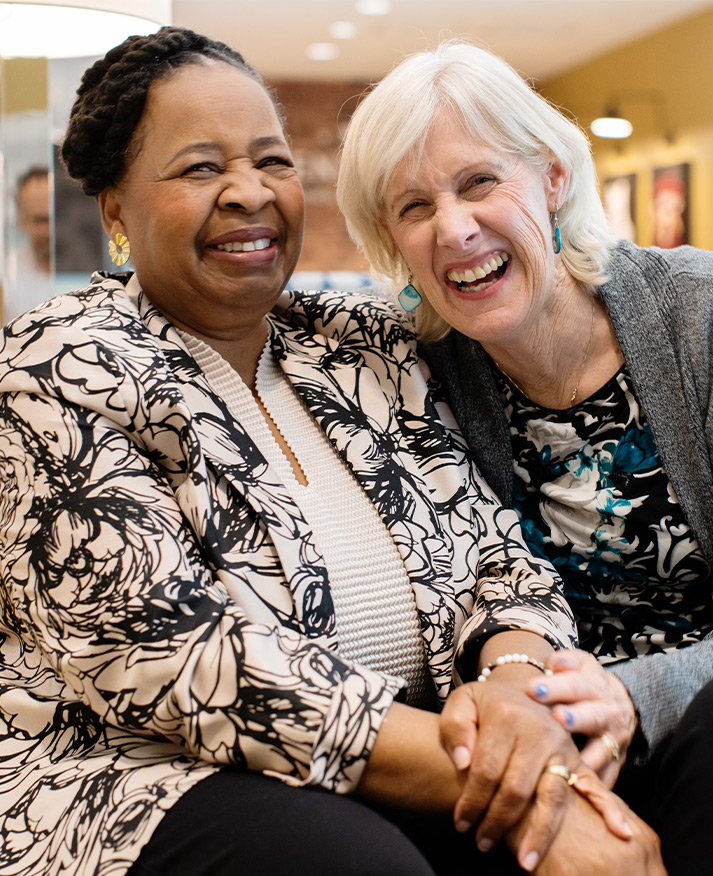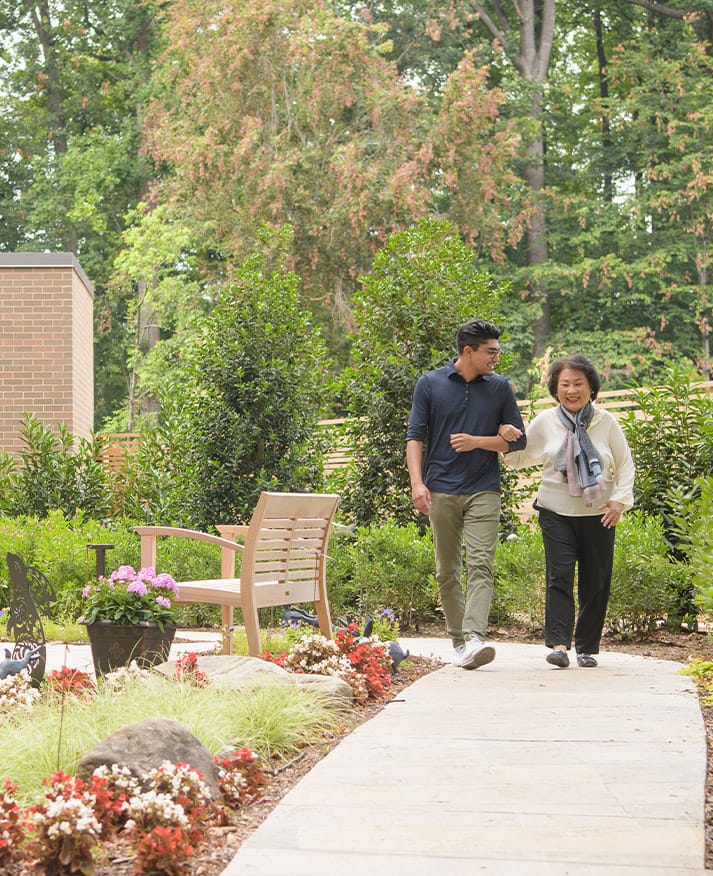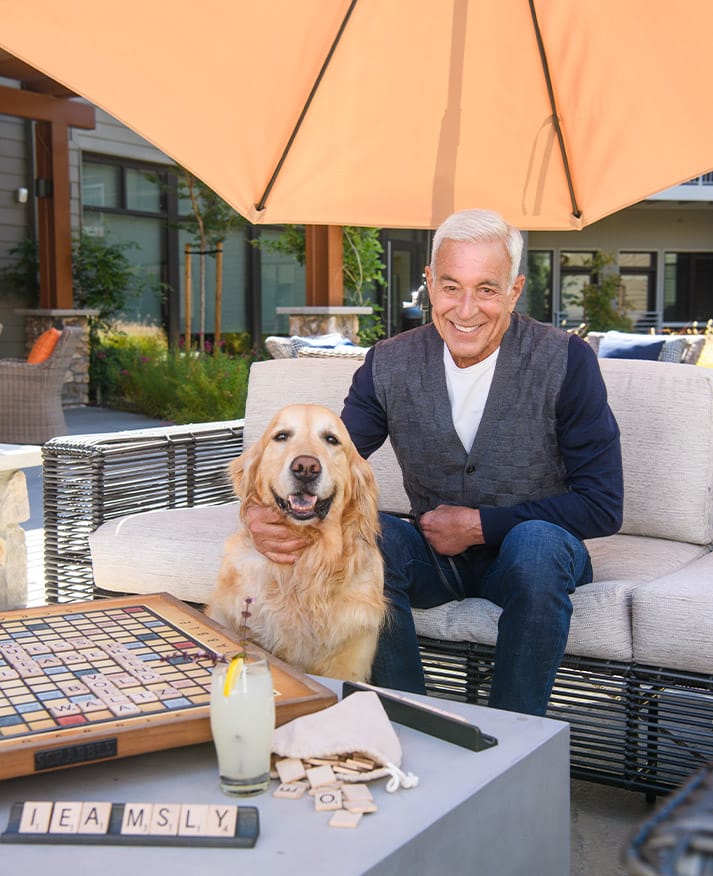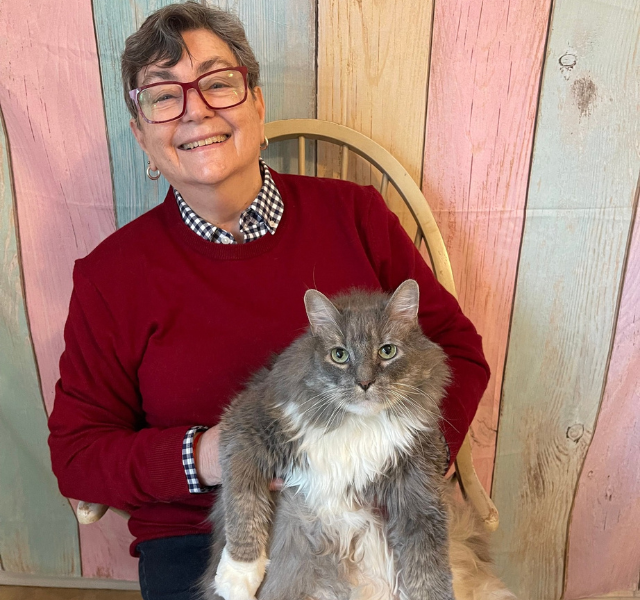
Teri
Finding Herself, Again and Again
Teri sat across from me — virtually — her background a simple white wall. She wore a beautiful blue sweater with white and red patterns under a red puffy vest that matched her bold, red glasses. Calm but strong, Teri has a presence. Like, if I needed to sail through a hurricane, I’d want Teri on my boat.
I explained what I wanted to cover in our interview, and she said, “Well, first of all, to bring you up to snuff, I’m a three-time cancer survivor, and I’ve also had open-heart surgery. So, growing older is really a benefit. I turned 77 last month and was very close to death at 47.” And 47 wasn’t even her first brush with cancer — just the worst.
Suddenly, all my carefully crafted questions about aging felt … small. Teri doesn’t just “deal” with aging — she celebrates it. Each birthday is her most important day of the year because it means she’s still here. She says, “Aging isn’t for the fainthearted. You’ve got to be pretty brave sometimes, but it’s worth it.”A year and a half ago, she left Central California and moved to Rochester, New York, a place where she says, “everything is different.” The houses, the people, the seasons. But Teri’s no stranger to change. She met her husband while training to become an ordained United Methodist minister. In her last year of seminary, she became pregnant with their first child. Instead of becoming a clergyman, she embraced the roles of pastor’s wife and mother, raising their two children while traveling the world for her husband’s work.
At 43, she received her first cancer diagnosis, followed by the second four years later. Illness altered her sense of identity as a wife and mother, yet she resisted being solely defined as a “cancer survivor.” Her next transformation was that of caretaker when her husband was diagnosed with Parkinson’s disease with dementia. After his passing two years ago, she faced yet another profound change — learning to navigate life on her own.
It was that feeling — loneliness — that nudged her toward a new beginning. A visit to her son’s family in Rochester turned into a realization: she was ready for something new. So she packed up her life and moved across the country, becoming, as she puts it, “a New Yorker.”
Now, with her children grown and living solo, she says she’s embracing another identity shift: friend.
After years of being a pastor’s wife, she says you have to “protect yourself from other people’s view of you because something I say or do could reflect on my husband’s career.” She’s working on letting down her defenses and opening herself up more, “letting people know who I [am] and not just who I appear to be.”
It turns out resilience isn’t just about survival — it’s about rediscovery. And Teri? She’s still finding herself, again and again.
Listen to an excerpt from Teri's interview.
To view the complete design of this article, visit the digital magazine here.
